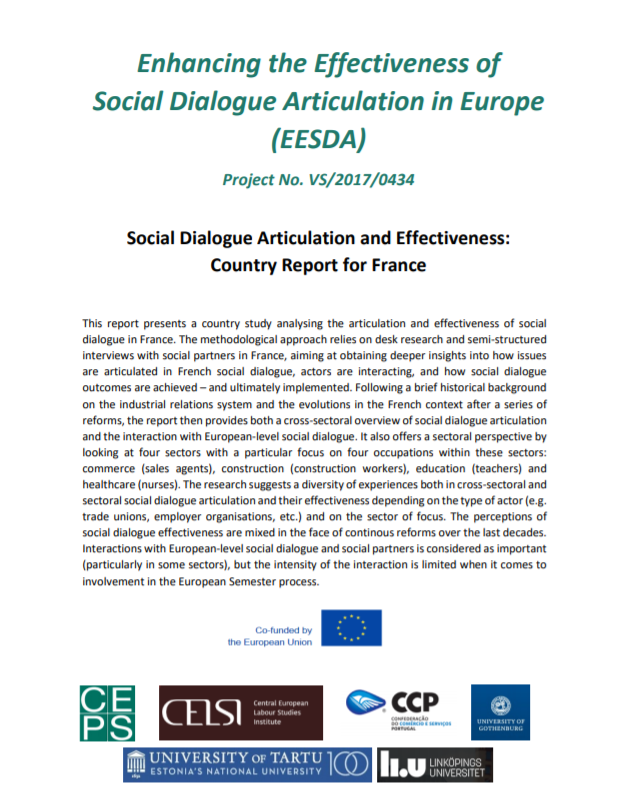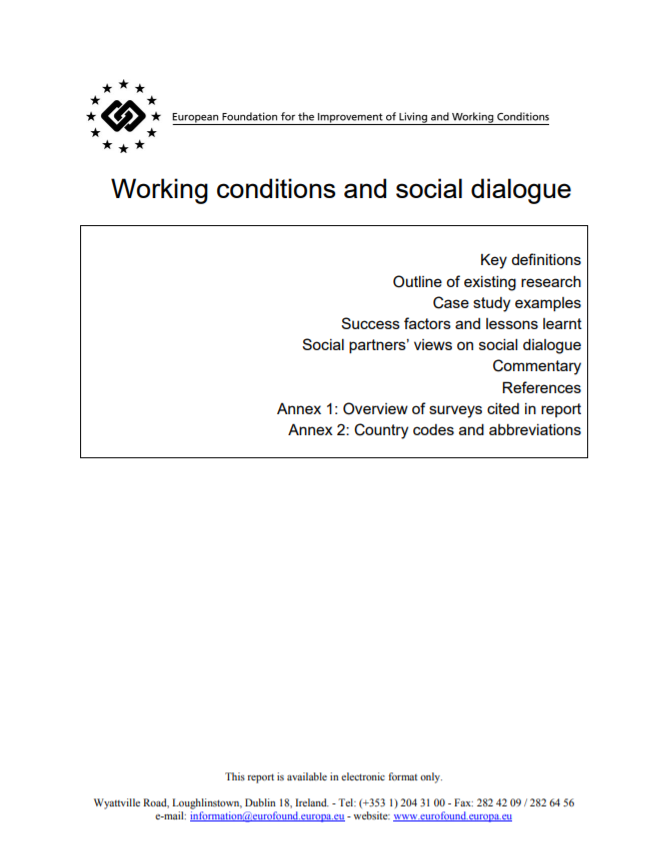
Summary
This study evaluates the current effectiveness and implementation of social dialogue in France. It does this through cross-sectoral analysis with interviews of key stakeholders and desk research. It concludes that, overall, social dialogue is deteriorating in effectiveness over time, despite increased involvement, and that it is being decentralised, preferring company decisions over sector decisions.
For the original source, please click here


